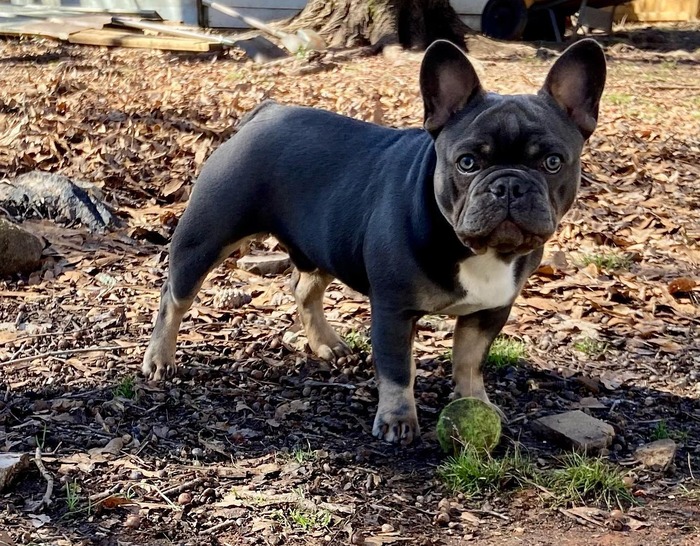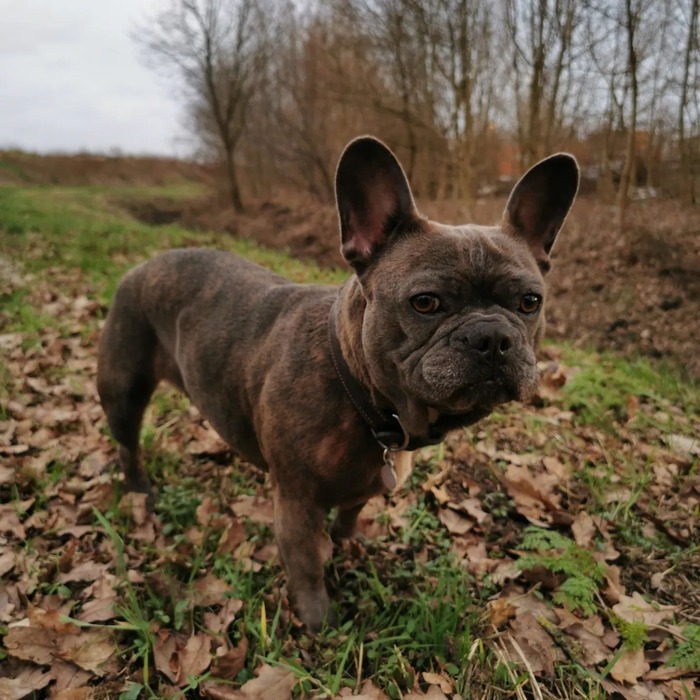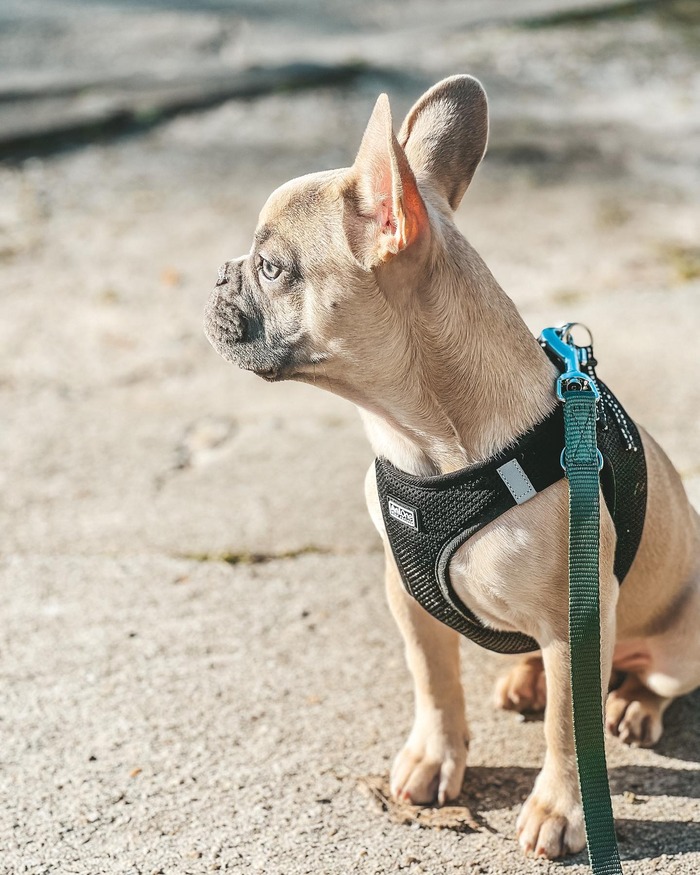When it comes to owning a beloved French Bulldog, pet owners need to know all they can about the breed and its growth. From its size and weight to its expected life span, understanding the basics of French Bulldog growth is essential for prospective puppy owners. This blog post will provide an overview of what you need to know about French Bulldog growth so you can make sure your pup grows up healthy and happy.
We’ll start by sharing some key facts about French Bulldogs that will give you an understanding of their size and weight as well as their life expectancy. Well, then, discuss the various factors that can affect a French Bulldog’s growth rate and development. Finally, we’ll look at how you can monitor your French Bulldog’s growth to ensure they remain healthy throughout its life.
So let’s get started!
French Bulldog Growth Chart

Suppose you’re considering getting a French Bulldog, ifs important to know a little bit about their growth. French Bulldogs are a small breed, but they can vary quite a bit in size. Some may only reach 15 pounds, while others may grow to be as large as 28 pounds.
French Bulldogs typically reach their full adult size by about 12 months old. However, they may continue to fill out and add some weight until they’re 18 months old or so. So, if you’re looking for a French Bulldog puppy that will stay small, look for one that’s on the smaller side.
As far as height goes, French Bulldogs usually max out at about 12-13 inches tall at the shoulder. Again, there can be some variation here, with some dogs being a bit taller or shorter. But overall, French Bulldogs are a fairly compact breed.
One thing to keep in mind is that French Bulldogs often appear much larger than they actually are due to their wide chests and short legs. So, don’t be surprised if your French Bulldog looks a lot bigger than other small breeds!
Overall, French Bulldogs are a small breed that typically reaches its full size by 12-18 months old. They tend to be fairly compact, with wide chests and short legs. Keep in mind that they may appear larger than they actually are due to their build.
Factors Affecting Growth

There are a few things that can affect how quickly your French Bulldog grows. For example, diet plays an important role in growth rate – if your pup isn’t getting enough nutrients, he or she may not reach his or her full potential height and weight.
Another factor is whether the parents were large or small for the breed – generally speaking, pups will take after their parents in terms of size (though there are always exceptions!). Additionally, activity level can play a role – pups who run and play frequently may end up being slightly leaner and less muscular than those who lead more sedentary lifestyles.
As a parent, it’s important to understand that there is no one “right” way for your pup to grow. Some may reach their full potential height and weight by six months old, while others may take a bit longer – up to 18 months or so. And that’s OK! Every pup is different and will grow at his or her own pace. Just be sure to provide plenty of love (and the occasional treat), and you’ll have a happy, healthy doggo in no time.
Estimating Adult Size

There are a number of ways to estimate how large your pup will be as an adult. The most accurate way is to take measurements of your pup’s weight and height at different intervals and use a growth chart to track his or her progress. You may also use weight and height estimator tools to get a general idea of how large your pup may be as an adult.
Growth Rate
The average growth rate for puppies is about one to two pounds per week during their first few months. After six months, most pups will have reached half of their adult weight. From six months to one year, they’ll gain weight more slowly, at a rate of about four ounces per week.
Measuring Your Pup’s Weight and Height
You can use a kitchen or postal scale to weigh your pup (be sure to account for his or her collar). To measure height, gently place your pup on his or her back and hold a ruler perpendicular to his body from the top of the head down along the spine to the base of the tail. Record these measurements in a notebook or on your phone so you can track your pup’s progress over time! As a pet parent, it’s only natural that you want nothing but the best for your furry friend—and that includes making sure he grows up healthy and happy.
Dangers Of Stunted Or Accelerated Growth

Unfortunately, not all growth patterns are considered healthy. Some can even be life-threatening. For example, if your pup is growing too slowly, he may have a congenital disease or endocrine disorder. On the other hand, if he’s growing too quickly, he may be suffering from gigantism or another hormonal condition. Of course, there are many possible causes of both accelerated and stunted growth, so it’s important to consult your veterinarian if you have any concerns. Common Signs Of A Growth Problem
While every pup is different, there are some common signs that may indicate a problem with growth. If your pup is barely eating or has lost his appetite altogether, this could be a sign of a health issue. Likewise, if he’s gaining weight rapidly or losing weight for no apparent reason, this could also indicate a problem. If you notice any changes in your pup’s eating or bathroom habits, or if he seems unusually lethargic or sluggish, these could be signs of a problem, and you should contact your vet right away. What You Can Do To Help Your Pup Grow Healthy And Strong
Of course, you can’t control everything when it comes to your pup’s health—but there are some things you can do to help him grow up strong and healthy. First and foremost, make sure you’re feeding him a high-quality diet that’s appropriate for his age and activity level. Puppies need more calories than adult dogs, so be sure to feed them accordingly. You should also make sure he’s getting enough exercise to keep his muscles and bones strong—but don’t overdo it, as puppies are more susceptible to injuries than adult dogs. Finally, keep an eye on his weight and height and track any changes over time so you can spot any potential problems early on. By taking these steps, you can help your pup grow into a healthy and happy adult dog!
Big Dogs Equal Big Litters

When it comes to big dog breeds, you can expect a litter size of anywhere from five to 10 puppies. But while a large litter size may be exciting, it also means more work for you as the owner. Not only will you have to feed and care for more puppies, but you’ll also need to socialize them, so they grow into well-rounded adults.
Small Puppies: Mother’s Health
When it comes to small breeds, litter sizes are typically smaller, averaging two to four puppies. But while you may have fewer mouths to feed, you’ll need to be extra vigilant when it comes to your puppy’s health. Small breeds are more prone to health problems, so it’s important to keep an eye on your pup’s weight and development.
Litter Size Problems

If you’re not careful, you may end up with more puppies than you can handle. Not only will you have to spend more on food and supplies, but you’ll also have to spend more time caring for the puppies. Too many puppies can also be overwhelming for first-time dog owners. So, if you’re thinking about getting a small breed dog, be sure to research the average litter size for that breed. That way, you can be prepared for what’s to come.
Predicting Litter Size
It’s difficult to predict how many puppies a small breed dog will have. The best way to get an idea is to ask the breeder about the average litter size for that particular breed. But even then, there are no guarantees. Some small breeds have large litters, while some have small litters. So, it’s always best to be prepared for the worst-case scenario. One of the biggest challenges of owning a small-breed dog is potty training. Small breeds often have small bladders, which means they have to go more frequently than larger breeds. This can be frustrating for owners who are used to taking their dogs out once or twice a day. Potty training a small breed dog can take weeks, or even months, so be patient and consistent with your pup.
Conclusion

Once your French Bulldog reaches adulthood, their growth will slow down considerably. However, they may still gain weight if they are not kept active and healthy. With proper care, your French Bulldog can enjoy a long and happy life by your side!
FAQs
How Big Do French Bulldogs Get?
Size at full maturity: 11-13 inches (male), 10-12 inches (female)
How Does Neutering/Spaying Affect My Dog’s Growth?
Your dog will reach full physical maturity by 12 to 18 months of age. Neutering or spaying does not usually affect the rate or timing of your pet’s growth and development.
What If My French Bulldog Is Not The Right Weight?
If your French Bulldog is not the right weight, consult your veterinarian. They can help you create a personalized feeding and exercise plan to help get them to a healthy weight.
When Do French Bulldogs Stop Growing?
French Bulldogs reach full physical maturity by 12 to 18 months of age. However, they may continue to fill out and develop muscle tone for the next year or two. Some individual dogs may even grow until they are three years old.

